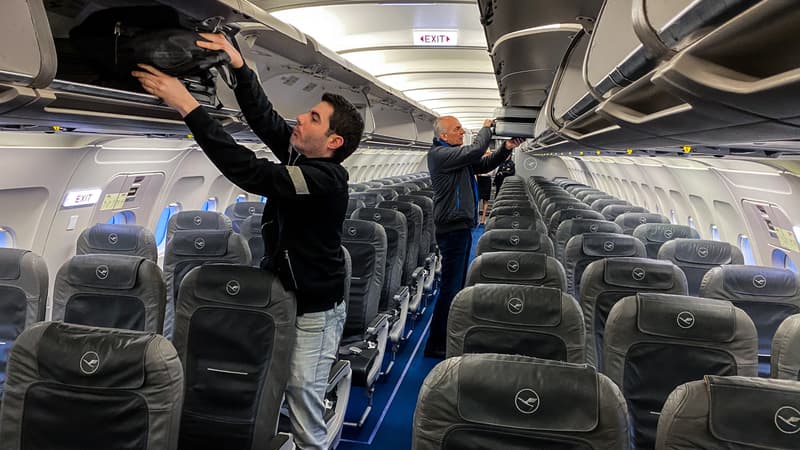It is the nightmare of every traveler who takes the plane: will my hand luggage be accepted in the cabin upon boarding or will I have to pay extra for a non-compliant size?
However, on paper things are simple. The International Air Transport Association (IATA) has adopted a framework to establish rules for the free carriage of hand luggage in the cabin: “the format adopted, i.e. 55 x 35 x 20 cm, will ensure that, in theory, All passengers are allowed to store their carry-on luggage on board aircraft with seats 120 or more. These dimensions include handles, pockets and wheels.
In reality, anarchy reigns supreme. If “traditional” companies (Air France-KLM, British Airways, Iberia, etc.) respect the Iata framework, low-cost companies apply their own rules with dimensions that vary a few centimeters.
Transparency
Following a resolution of the European Parliament, the European Commission asked carriers at the end of November to harmonize their practices and, above all, to be transparent (which is far from being the case) about the dimensions of authorized hand luggage. In cabin.
Brussels aims to be an incentive and does not propose a binding directive. For now. He promises to act if companies don’t play along “within a reasonable time frame.”
Because this confusion, skillfully maintained by some companies, generates significant revenue, since passengers whose luggage does not comply with the rules really have no choice: either they pay or they do not take off.
“Hand luggage cannot be subject to an additional charge”
Especially since carrying hand luggage can be a payment option when purchasing the ticket: from 25 to 58 euros for low-cost airlines. Like other hidden costs (payment by bank card, seat selection, etc.) “that make price comparison difficult and generate unfair competition in the market,” the MEPs believe.
The European Parliament resolution therefore advocates the strict application of a 2014 ruling by the European Court of Justice (CJEU) that qualifies hand luggage as an “indispensable element of passenger transport” (which cannot be ) “not be subject to a price supplement.” .
In its communication, the Commission does not support the request for a ban on this paid option. According to some MEPs, the lobbying of some companies has been intense.
It must be said that “hidden costs” or “associated income” are at the center of the turnover of many companies and will represent this year on average almost 15% of their total income, with 117.9 billion dollars, according to one study, compared to 6.7% in 2014.
For some companies, it’s much more. According to Forbes, these revenues represent 56% of Wizz Air’s turnover, 44.7% of Ryanair’s or even 31.4% of easyJet’s.
Source: BFM TV


